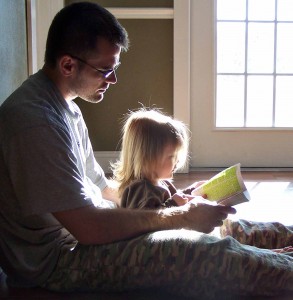Last week was Babywise Networked-Blog week. Each member of the team posted on a subject of their choosing. You can visit the member blogs by visiting the following links:
Today’s featured Babywise Networked Blog post is by Maureen Monfore of at Childwise Chat. Maureen shares her recent experiences with reading aloud to her son. My wife Sherry recently began reading aloud to our boys at bedtime on a regular basis. They have been going through a series by Jenny L. Cote that begings with The Ark, The Reed, and The Fire Cloud.
Maureen learned some valuable lessons and shared her tips for being more successful when reading books aloud to your little ones. Check out Maureen’s post titled Savor Books by Reading Slowly.














 by Valerie Plowman from
by Valerie Plowman from 




